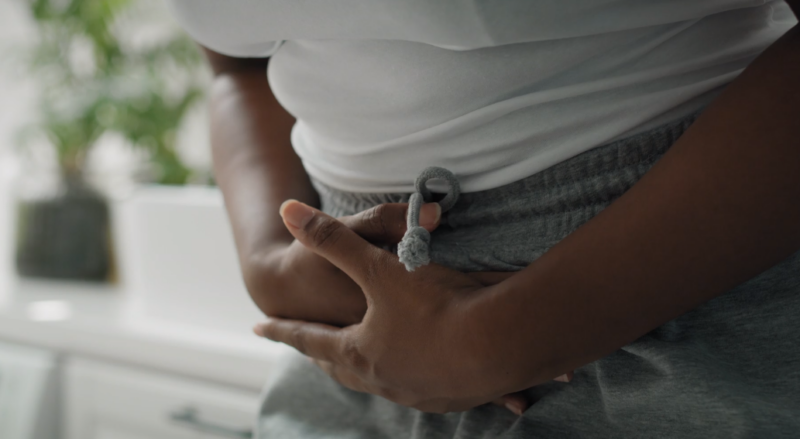Prolonged period bleeding, also known as menorrhagia, is a condition where a woman experiences menstrual bleeding that lasts longer than seven days or is excessively heavy.
There are many possible causes of this condition, such as hormonal imbalance, ovulation problems, uterine fibroids or polyps, pregnancy complications, cancer, or certain medications.
Prolonged period bleeding can have serious consequences for a woman’s health and quality of life, such as anemia, infection, infertility, or psychological distress. Therefore, it is important to seek medical attention and treatment if one experiences this condition.
The purpose of this essay is to discuss the various treatment options for prolonged period bleeding, such as medications, home remedies, and lifestyle changes, and to evaluate their effectiveness and suitability for different cases.
1. Medications

One of the treatment options for heavy menstrual bleeding, also known as menorrhagia, is medication. There are different types of medications that can help reduce menstrual blood loss and regulate menstrual cycles.
Some of the common medications are nonsteroidal anti-inflammatory drugs (NSAIDs), tranexamic acid, and oral contraceptives.
NSAIDs, such as ibuprofen and naproxen, can help relieve pain and inflammation during menstruation. They can also lower the amount of blood loss by reducing the production of prostaglandins, which are substances that cause the uterus to contract and bleed.
These are usually taken before or during the first few days of the period.
Tranexamic acid is a medication that slows down the breakdown of blood clots in the uterus. This can help prevent excessive bleeding and anemia. Tranexamic acid is taken only during the time of bleeding, usually for up to five days.
Potential Side Effects
However, medications are not without side effects or risks. Some of the possible side effects of NSAIDs are stomach upset, ulcers, bleeding, and kidney problems. Some of the possible side effects of tranexamic acid are nausea, headache, diarrhea, and blood clots.
Therefore, it is important to consult a doctor before taking any medication and to follow the instructions carefully.
Hormonal Birth Control
Hormonal birth control is a method of preventing pregnancy that involves taking synthetic hormones, such as estrogen and progestin. Some examples of hormonal birth control are pills, injections, and intrauterine devices (IUDs).
Hormonal birth control works by suppressing ovulation, thickening cervical mucus, and thinning the uterine lining. By doing so, it can regulate menstrual cycles and reduce bleeding. Some people may even stop having periods altogether while using hormonal birth control.
These pills have many benefits, such as preventing unwanted pregnancies, reducing menstrual cramps and pain, lowering the risk of ovarian and endometrial cancers, and treating certain conditions, such as endometriosis and polycystic ovary syndrome.
However, hormonal birth control also has some risks and side effects, such as breakthrough bleeding, mood changes, weight gain, headaches, nausea, breast tenderness, and blood clots.
Some people may also have allergic reactions or infections from using certain types of hormonal birth control, such as IUDs. It’s very important to mention that these pills do not protect against sexually transmitted infections (STIs), so it is important to use condoms or other barrier methods as well.
2. Home Remedies

Some people may prefer to use natural or home remedies to stop or reduce their period bleeding. Some of the common home remedies include apple cider vinegar, gelatin, and massage.
| Home Remedy | Description | Safety and Considerations |
|---|---|---|
| Apple Cider Vinegar |
|
|
| Gelatin |
|
|
| Massage Therapy |
|
|
3. Lifestyle Changes
Your lifestyle is one of the most important things when it comes to your overall health. By changing it, you can greatly contribute to your well-being.
Reduce Stress
One of the natural ways to stop prolonged period bleeding is to reduce stress. Stress can disrupt the hormonal balance and trigger inflammation, which can worsen bleeding.
Therefore, it is important to practice stress management techniques, such as meditation, yoga, breathing exercises, or counseling.
Exercise Regularly
Exercise can help regulate hormones, improve blood circulation, and reduce body fat, which can affect estrogen levels. However, excessive or intense exercise can also cause hormonal imbalance and bleeding, so moderation is key.
Maintain a Healthy Diet

A diet rich in iron, vitamin C, vitamin K, and omega-3 fatty acids can help replenish blood loss, support blood clotting, and reduce inflammation. Some of the foods that can help with prolonged periods of bleeding are leafy greens, citrus fruits, fish, nuts, and seeds.
Besides the diet, it is crucial to stay hydrated. Drinking enough water and fluids can help prevent dehydration, which can worsen bleeding and cramps. Moreover, hydration can help flush out toxins and excess hormones from the body.
Use Herbal Supplements
Some herbs, such as ginger, turmeric, cinnamon, and raspberry leaf, have anti-inflammatory, antispasmodic, and hemostatic properties, which can help reduce bleeding and pain. These should be used with caution and under the guidance of a health professional, as they may interact with medications or have side effects.
Do Pelvic Floor Exercises
Pelvic floor exercises, such as Kegels, can help strengthen the muscles that support the uterus and other pelvic organs. This can help prevent uterine prolapse, which can cause heavy bleeding.
These exercises can also improve bladder and bowel control, sexual function, and posture.
Apply heat therapy
Heat therapy, such as using a hot water bottle, a heating pad, or a warm bath, can help relax the uterine muscles and blood vessels, which can reduce bleeding and cramps. Heat therapy can also provide comfort and relief from menstrual discomfort.
When to See a Doctor?
If a woman experiences prolonged period bleeding that lasts longer than seven days, soaks through one or more pads or tampons every hour, causes anemia, or interferes with daily life, she should see a doctor as soon as possible.
A doctor may diagnose the cause of prolonged period bleeding using various tests and procedures, such as:
Blood tests: Blood tests can measure the levels of hormones, thyroid function, blood count, clotting factors, and pregnancy hormones.
Pap tests: Pap tests can detect abnormal cells or infections in the cervix that may indicate cervical cancer or other conditions.
Endometrial biopsy: Endometrial biopsy is a procedure where a small sample of the endometrial tissue is removed and examined under a microscope. It can diagnose endometrial cancer, hyperplasia, or other abnormalities.
Ultrasound: Ultrasound is a procedure that uses sound waves to create images of the pelvic organs. It can detect the presence and size of fibroids, polyps, cysts, or other masses.
Sonohysterography: Sonohysterography is a procedure that involves injecting saline into the uterus and performing an ultrasound. It can provide a clearer view of the endometrial lining and detect any abnormalities.
Hysteroscopy: Hysteroscopy is a procedure that involves inserting a thin, lighted tube through the vagina and cervix into the uterus. It can allow the doctor to see the inside of the uterus and remove any fibroids, polyps, or other growths.
Treatment

The treatment of prolonged period bleeding depends on the cause, the severity, and the patient’s preferences. Some of the possible treatments are:
- Medications: Medications, such as NSAIDs, tranexamic acid, oral contraceptives, or hormonal injections, can help reduce blood loss and pain, regulate hormones, and prevent pregnancy.
- IUDs: Intrauterine devices (IUDs) are small, T-shaped devices that are inserted into the uterus. They can prevent pregnancy and reduce bleeding by releasing hormones or copper.
- Surgery: Surgery, such as endometrial ablation, uterine artery embolization, myomectomy, hysterectomy, or laparoscopy, can remove or destroy the endometrial lining, the fibroids, the polyps, or the entire uterus.
FAQs
Can Prolonged Period Bleeding Affect Fertility?
Prolonged period bleeding, or menorrhagia, can potentially impact fertility in some cases. This is often due to underlying conditions that cause heavy bleeding, such as hormonal imbalances, uterine fibroids, or polyps, which can interfere with the normal process of ovulation or implantation.
However, it’s important to note that not all cases of prolonged bleeding directly lead to fertility issues. Consulting with a healthcare provider is essential for a proper diagnosis and treatment plan.
Are There Any Specific Vitamins or Supplements Recommended for Managing Prolonged Period Bleeding?
Vitamin K aids in blood clotting, Iron supplements can help prevent or treat anemia caused by heavy bleeding, and Vitamin C improves Iron absorption and supports the blood vessels’ health. Always consult with a healthcare provider before starting any new supplement.
Can Lifestyle Changes Alone Resolve Prolonged Period Bleeding?
While these can positively impact overall menstrual health, they may not be sufficient to resolve prolonged period bleeding, especially if it’s caused by underlying medical conditions. These changes can support other treatments but should not replace medical consultation and possible medical interventions.
How Does Prolonged Period Bleeding Differ in Perimenopause?
During perimenopause, hormonal fluctuations can cause changes in menstrual patterns, including prolonged period bleeding. This bleeding may be irregular and vary in intensity.
It’s important for women experiencing these symptoms in perimenopause to consult with their healthcare provider to rule out other potential causes and receive appropriate guidance.
Is Acupuncture Effective in Treating Prolonged Period Bleeding?
Yes, acupuncture has been used to treat various menstrual disorders, including prolonged period bleeding. It is believed to help regulate hormonal imbalances and improve blood circulation.
However, scientific evidence on its effectiveness is mixed, and it should be considered as a complementary therapy rather than a primary treatment method.
Summary
All in all, we’ve seen that prolonged period bleeding can be a sign of serious health problems, but there are also some lifestyle changes and alternative remedies that can help cope with it or stop it.
However, it is important to seek help from a doctor if the bleeding persists or interferes with daily life, as it can indicate a serious condition or lead to complications, such as anemia, infection, or infertility.
Therefore, women should be aware of their menstrual health and consult a doctor if they experience any abnormal or prolonged bleeding.

